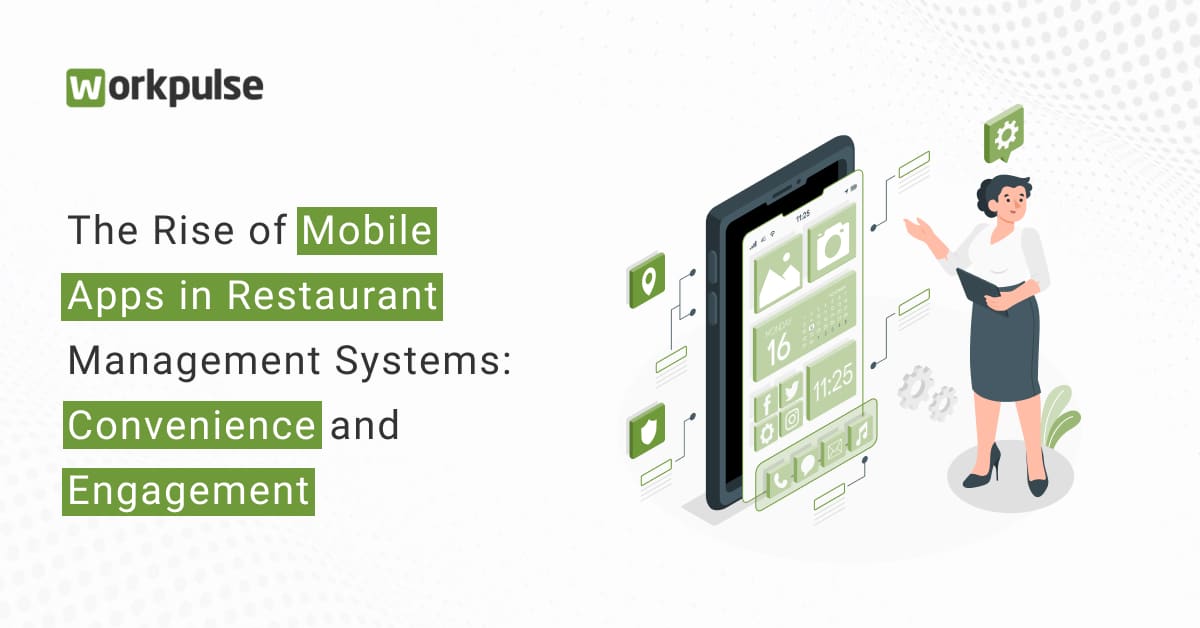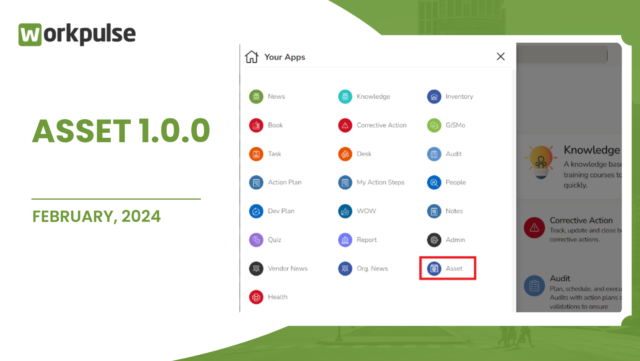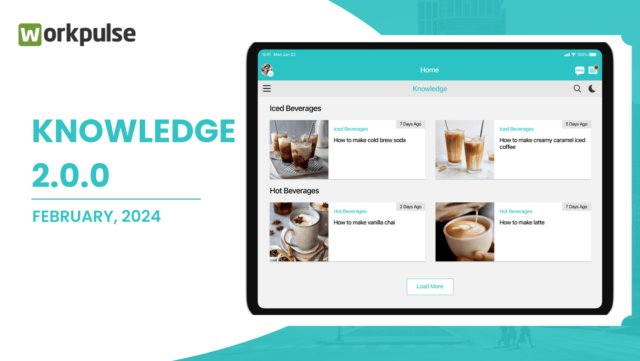In today’s fast-paced and digitally-driven world, the restaurant industry is experiencing a remarkable shift in how operations are managed, and customer interactions are facilitated. The rise of mobile apps in a restaurant management system has become a game-changer, bringing convenience and engagement to a whole new level. Notably, quick-service restaurants (QSRs) are benefiting immensely from this transformation, as mobile apps offer innovative solutions to overcome various challenges they face on a daily basis.
Gone are the days when QSR owners and managers had to physically visit each location to keep track of activities and ensure compliance. The cumbersome process of flipping through pages of the “red book” for audits and inspections is now being replaced by streamlined and efficient mobile app solutions. With the power of mobile apps, QSRs can now effortlessly monitor and manage their operations across multiple locations from a single dashboard, eliminating the need for a physical presence at each outlet.
Gone are the days when QSR owners and managers had to physically visit each location to keep track of activities and ensure compliance. The cumbersome process of flipping through pages of the “red book” for audits and inspections is now being replaced by streamlined and efficient mobile app solutions. With the power of mobile apps, QSRs can now effortlessly monitor and manage their operations across multiple locations from a single dashboard, eliminating the need for a physical presence at each outlet.
The benefits of mobile apps in managing restaurant operations
Mobile apps have emerged as indispensable tools for the restaurant industry, offering a multitude of benefits to streamline and enhance various aspects of restaurant operations. From streamlining communication to improving customer engagement, mobile apps have revolutionized the way restaurants operate and interact with their customers. Let’s explore some of the key benefits of mobile apps in managing restaurant operations:
#1: Convenience for QSR Operations
Mobile apps have revolutionized how QSRs manage their day-to-day operations. From staff scheduling and task assignments to inventory management and reporting, mobile apps provide a centralized platform that facilitates seamless communication and real-time access to critical data. With just a few taps on their smartphones, managers can efficiently assign tasks, monitor progress, and address any arising issues, all without the need to be physically present at the location.
Moreover, mobile apps enable QSRs to digitize their compliance processes, ensuring adherence to brand standards, food safety protocols, and health regulations. Instead of relying on manual record-keeping and paper-based documentation, mobile apps offer digital checklists and inspections that can be completed and monitored in real time. This streamlined approach not only saves time but also reduces the risk of errors and enhances overall efficiency.
Task assignments and staff scheduling have become a breeze with mobile apps. Managers can easily assign tasks to team members, set priorities, and monitor progress, all in real time. This level of connectivity fosters improved coordination and ensures that everyone is on the same page, even when they are not physically present at the restaurant.
One of the key benefits of mobile apps for QSRs is their ability to digitize compliance processes. By offering digital checklists and inspections, these apps ensure that brand standards, food safety protocols, and health regulations are meticulously followed. Real-time data capture allows managers to receive instant updates on compliance status, enabling swift corrective action if needed. This shift from manual record-keeping to digital solutions not only saves time but also reduces the risk of errors, ensuring greater accuracy in compliance management.
Inventory management is another area where mobile apps shine. With access to a centralized platform, managers can effortlessly track inventory levels, monitor stock movement, and place orders in real-time. This eliminates the guesswork and ensures that the right ingredients and supplies are available when needed, avoiding stockouts and wastage.
Furthermore, mobile apps offer robust reporting and analytics capabilities, empowering QSRs with valuable insights into their performance and areas for improvement. Managers can access critical data on sales, customer feedback, and operational metrics, enabling data-driven decision-making for enhanced efficiency and profitability.
#2: Simplified Feedback and Reviews
Mobile apps play a pivotal role in simplifying the process of gathering customer feedback and reviews for restaurants. With mobile versions of restaurant operating systems, customers can conveniently share their experiences and opinions right from their comfortable smartphones. By offering a user-friendly interface and intuitive feedback forms, restaurants encourage higher response rates and a seamless feedback submission process.
The beauty of mobile apps lies in their ability to instantly transmit feedback to restaurant management, ensuring that the insights are received in real-time. This feature empowers restaurants to be proactive in addressing any concerns or issues raised by customers. By promptly acknowledging and responding to feedback, restaurants can demonstrate their commitment to customer satisfaction and showcase their responsiveness to their patrons’ needs.
Furthermore, mobile apps integrated with restaurant operating systems streamline the process of tracking and managing customer complaints. As soon as a customer submits a complaint through the mobile app, the restaurant system can automatically assign it to the appropriate personnel for swift resolution. This eliminates the risk of complaints falling through the cracks and ensures that each concern is promptly addressed by the right individual, increasing the efficiency of the guest recovery process.
Moreover, mobile apps offer additional channels for connecting with customers to resolve their concerns. Through mobile versions of restaurant operating systems, restaurant staff can directly communicate with customers via calls or emails, fostering personalized and efficient interaction. This direct communication not only demonstrates the restaurant’s dedication to resolving issues but also provides an opportunity to show genuine concern for the guest’s experience.
The improved guest recovery process facilitated by mobile apps results in enhanced guest retention and loyalty. By addressing concerns proactively and providing timely resolutions, restaurants can turn dissatisfied guests into delighted and loyal customers. Such proactive measures not only contribute to positive word-of-mouth marketing but also demonstrate a commitment to continuous improvement and customer-centricity.
#3: Seamless Tracking and Compliance
Perhaps one of the most significant advantages of mobile apps for QSRs is the ability to keep track of all activities and compliance measures across locations effortlessly. With the intuitive interface of mobile apps, managers can access real-time insights, view audit reports, and monitor compliance levels from a centralized dashboard. This visibility enables quick identification of any gaps in compliance and allows for prompt corrective actions.
The ease of tracking and compliance management provided by mobile apps ensures that QSRs can maintain consistency in brand standards and operational excellence across all outlets. Managers can quickly identify areas that need improvement and address any issues before they escalate. By maintaining consistent compliance, QSRs can not only deliver exceptional guest experiences but also minimize the risk of violations and potential penalties.
#4: Streamlining Audits and Enhancing Inspection Success
Mobile versions of restaurant operating systems, such as Workpulse rOS, offer a game-changing advantage by streamlining the auditing process, ensuring the successful completion of inspections, and maintaining compliance at all times. These cutting-edge platforms empower restaurant managers and staff to optimize their audit procedures, making them efficient, error-free, and hassle-free.
With mobile audit capabilities, restaurant teams can perform audits directly on their smartphones or tablets. This eliminates the need for cumbersome paperwork and manual data entry, saving time and reducing the risk of errors. Real-time data capture ensures that audit findings and proofs are recorded promptly, enabling managers to address any issues proactively and effectively.
Moreover, leading-edge restaurant operating systems take audit functionality a step further by providing robust features for submitting audit proofs. Managers can attach photos, notes, and other relevant documents to support audit findings and demonstrate compliance. This not only ensures comprehensive documentation but also expedites the audit review process, as all evidence is readily available for inspection.
One of the significant advantages of using mobile versions of restaurant operating systems is the ability to review previous audits. By accessing historical audit data, managers can identify patterns, track progress, and identify areas for improvement. This historical insight helps restaurant teams learn from past experiences, make informed decisions, and better prepare for future audits, ensuring continuous growth and compliance enhancement.
Beyond external inspections, mobile restaurant operating systems also enable businesses to organize internal audits seamlessly. Internal audits are crucial for regularly assessing compliance levels, identifying potential risks, and ensuring consistent adherence to brand standards and regulations. With these platforms, internal audits become an integral part of restaurant management, fostering a culture of compliance and operational excellence.
#5: Streamlining Facilities and Equipment Maintenance
Restaurant operating system mobile apps offer a comprehensive solution for streamlining facilities and equipment maintenance, empowering restaurant staff to manage tasks efficiently and ensure optimal equipment reliability.
With mobile apps, restaurant managers and maintenance teams can create maintenance tasks directly from their mobile phones. This eliminates the need for manual paperwork and enables immediate action upon identifying maintenance requirements. Whether it’s a broken appliance or a facility repair, tasks can be initiated promptly, minimizing downtime and operational disruptions.
Furthermore, mobile apps provide real-time alerts and notifications, keeping the maintenance team informed about task assignments, updates, and deadlines. These notifications ensure that no task falls through the cracks and that all issues are addressed promptly.
Supporting documents, such as images and videos, can be easily attached to maintenance tasks using mobile apps. This feature allows maintenance staff to visually assess the issue and ensure they have the necessary information and resources to address it effectively. Additionally, these supporting documents serve as a valuable reference for future maintenance work, contributing to a well-documented maintenance history.
Mobile apps also enable maintenance teams to add notes and additional information to tasks. These notes can include details about the repair process, specific instructions, or any observations made during the maintenance work. This collaborative approach ensures seamless communication among team members and contributes to a more efficient maintenance process.
One of the key benefits of restaurant operating system mobile apps is the ability to view the details and progress of all maintenance tasks from a centralized dashboard. This provides managers with a comprehensive overview of ongoing and completed maintenance work, allowing them to track performance, identify trends, and make data-driven decisions to optimize maintenance operations.
Furthermore, mobile apps facilitate comparative maintenance analysis, enabling restaurants to compare maintenance data within a single location as well as across multiple locations. This feature helps identify maintenance trends and patterns, streamline maintenance processes across the organization, and ensure consistent equipment reliability.
Transform restaurant operations with Workpulse rOS
Leading-edge restaurant operating systems, such as Workpulse rOS, have set the bar high by offering advanced features and functionalities that cater to the unique needs of the restaurant industry. Workpulse rOS allows users to review previous audits, organize internal audits, and ensure compliance at all times. The comprehensive and user-friendly nature of these mobile apps ensures that QSRs can achieve operational excellence, enhance guest experiences, and stay ahead of the competition. Schedule your demo of Workpulse rOS today and leverage the power of mobile apps for your operations.
In a rapidly evolving landscape, mobile apps have become a cornerstone in the success of QSRs. As technology continues to advance, these apps will undoubtedly play an increasingly vital role in the restaurant industry. Embracing mobile apps in restaurant management systems is not just a trend; it is a strategic decision that will empower QSRs to thrive in the modern restaurant landscape. With their convenience and engagement, mobile apps have revolutionized the way QSRs operate, interact with customers, and ultimately drive success in this dynamic and competitive industry.




